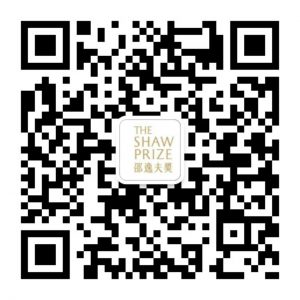於美國愛荷華大學取得醫學博士學位
擔任美國愛荷華大學助理教授
擔任美國愛荷華大學副教授
擔任美國愛荷華大學內科醫學教授
擔任美國愛荷華大學囊性纖維化研究所所長
與保羅.內古列斯庫各同獲得2022年度邵逸夫生命科學與醫學獎
I grew up in the rolling hills of rural Iowa, and my parents were the most important influence in shaping my life. They worked hard; after returning wounded from World War II, my father worked in a foundry during the day and a bakery at night, and my mother tended a large garden, canned vegetables and fruit, made my clothes, and raised four children. My parents taught me that I was no better than anyone else and to respect all people.
As a boy, I did chores and milked the cow morning and night. My elementary school had two classrooms; mine was the largest class with five students. My only other scheduled activity was weekly Red Cross swimming lessons during the summer. This gave me the time and freedom to play, read, and pursue my imagination.
I had no specific career goal when I entered college, so I sampled and enjoyed literature, philosophy, ethics, languages, and science. In retrospect, this broad exposure provided a foundation that has enriched my personal and professional life. Although I had no real knowledge of medicine, with time I decided to become a physician for the simple reason that I thought it was a job worth doing. I was heavily influenced by President John Kennedy’s exhortation to go beyond oneself and contribute to society.
It was in medical school and internship and residency at Iowa that I had my first taste of research. My attendings were physician-scientists who were caring for patients and also working in the lab, Drs Jack Hoak, Qais Al-Awqati, Don Heistad, and Frank Abboud. I was drawn to the intellectual challenge, problem solving, and goal of improving our patient’s lives. These mentors gave me my first experiences in research, and I loved it. I knew this would be my life’s work after further training at the University of California San Francisco and the University of Texas Houston. I returned to the University of Iowa as an Assistant Professor seeing patients and setting up my research lab.
I reveled in the joy of discovery. It was thrilling to pore over new data. Understanding something for the first time often filled me with a sense of peace, and then set me to dreaming about the implications and thinking about the next important question and how we might answer it.
Two factors drove my focus on cystic fibrosis (CF). First, I cared for people with CF on the wards. I knew what we could do for them, and importantly, what we could not do ― we desperately needed treatments to halt the progressive lung destruction. Second, my research began with curiosity about how salt and water moved across the epithelial sheets lining the lung’s airways. When Dr Paul Quinton found that CF sweat glands were impermeable to chloride, I increasingly focused on elucidating mechanisms by which respiratory epithelia transport chloride. We discovered that CF airway epithelia lack a chloride permeability in their apical membrane, helping establish defective chloride conductance as a unifying abnormality in CF.
In 1989, Drs Lap-Chee Tsui, Francis Collins, and their colleagues identified the gene that is mutated in CF: CFTR. I remember the Sunday afternoon when my post-doc came out to my house showing me that she had CFTR protein on a gel. The next day I went to my department chairman, Dr Frank Abboud, telling him that I needed to take a sabbatical. He asked when, and I said “today”, and when he asked where, I said “my lab”. My pulmonary colleagues stepped in, covering my clinical responsibilities in the Intensive Care Unit, freeing me to focus full time on the research.
Thus began what was for me an extremely exciting series of discoveries. We tried to focus on the most important problem and construct the simplest, cleanest hypotheses. Although the questions were simple, we were adapting novel tools and techniques that had been developed for other purposes. We pushed forward, driven by the thrill of discovery and the strong belief that our research would provide the foundation, the enabling approaches, and the roadmap for developing medicines that would change the lives of people suffering from CF. I commend and thank the co-recipient of the Shaw Prize, Dr Paul Negulescu, and his colleagues for their development of those highly effective medicines.
Our progress was always a team effort. I was incredibly fortunate to work with a fantastic group of students, post-docs, staff, and faculty. Dr Alan Smith and his colleagues at Genzyme were splendid collaborators. Our patients with CF inspired us and participated in many of our studies. The University of Iowa provided an exceptional environment for physician-scientists, and Howard Hughes Medical Institute, National Institutes of Health, and Cystic Fibrosis Foundation funding gave us the freedom to pursue problems no matter what direction they took.
I have been fortunate to have married two amazing women. I met Ruth as a college student. We had a wonderful life and raised three children. I am enormously proud of the people they have become. Ruth died 16 years ago from cancer. Nine years ago I met Anne, and luckily, I convinced her to marry me and move to Iowa. None of my research advances would have been possible without the love and support of my family.
I am thankful for the rare privilege to see within a lifetime a field move from the clinic where I cared for young people coughing and struggling to breathe, through an understanding of the responsible cellular and molecular mechanisms, and then back to the clinic with medicines that dramatically improve their lives.
29 September 2022 Hong Kong
